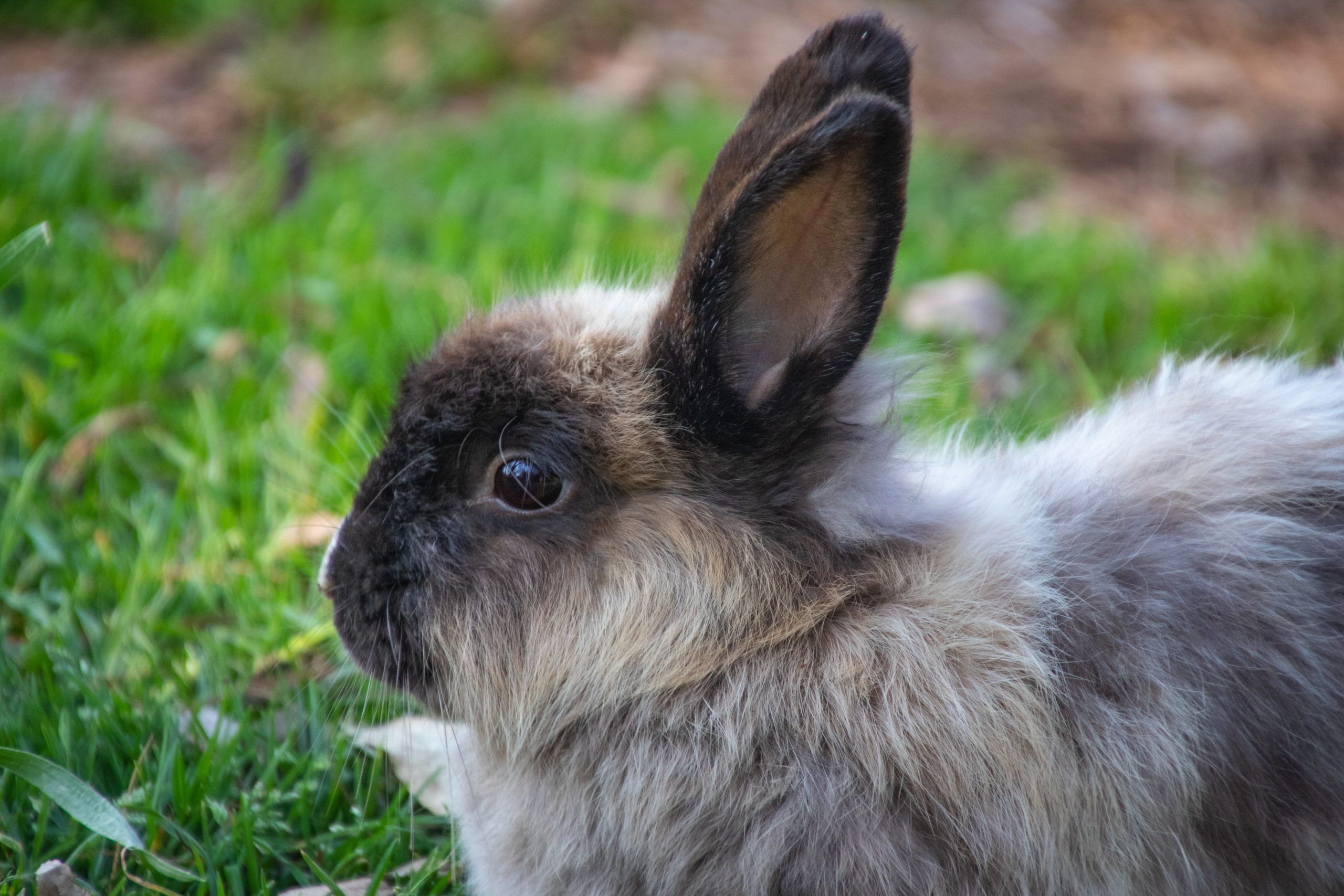FEEDING THE PET RABBIT
The following is intended as a feeding guide for a normal adult pet rabbit. Young (<8 months old), sick, pregnant, or nursing rabbits have different requirements. Any changes to a rabbit’s diet should be made slowly and under a veterinarian’s supervision.
Hay – Fresh “timothy” hay should be available in unlimited amounts at all times, and changed daily. Rabbits tend to eat small amounts of food frequently throughout the day and withholding hay for long periods of time can lead to intestinal upsets. Only “grass” hay, such as timothy, brome, or oat hay should be fed in unlimited amounts. “Legume” hay such as alfalfa can be too nutrient-dense and have improper calcium/phosphorus ratios.
Pellets – A good quality rabbit pellet may be offered daily but in limited quantities. Pellets are a rich source of nutrients, but most pellets are also very high in carbohydrates and low in fiber. Unlimited feeding of a pelleted diet can lead to obesity and other health problems. Make sure that you buy pellets high in fiber (18% or more), and that you buy small quantities. Keep the pellets in a cool dry place or in the refrigerator. Pelleted diets with extra colored pieces, seeds, or grains are not recommended because of the potential for selective feeding.
Rabbits under eight months old can have unlimited pellets. Older than eight months should consult the following table:
| Body Weight in pounds | Pellet ration per day |
| 2-4 lbs. | 1/8 cup |
| 5-7 lbs. | 1/4 cup |
| 8-10 lbs. | 1/2 cup |
| 11-15 lbs. | 1 cup |
Fresh Vegetables – Offer small amounts of fresh vegetables daily at a rate of 1 cup per 5 lbs. of body weight. Variety is good but be careful not to make any sudden changes and always observe for signs of GI upset such as diarrhea or loss of appetite. Introduce new vegetables in small quantities at first, and discontinue that particular vegetable if you notice a problem. The following are all acceptable: Carrot tops, beet tops, dandelion greens and flowers (these are excellent, but no pesticides, please), kale, collard greens, escarole, romaine lettuce, (don’t give light colored leaf lettuce or iceberg lettuce), parsley, clover, cabbage, broccoli (don’t forget the leaves), carrot, green peppers, pea pods (the flat edible kind), brussel sprouts, basil, peppermint leaves, raspberry leaves, raddichio, bok choy, and spinach.
EVESHAM VETERINARY CLINIC
800 Route 73 South
Marlton, NJ 08053
(856) 983-9440
www.eveshamvet.com

